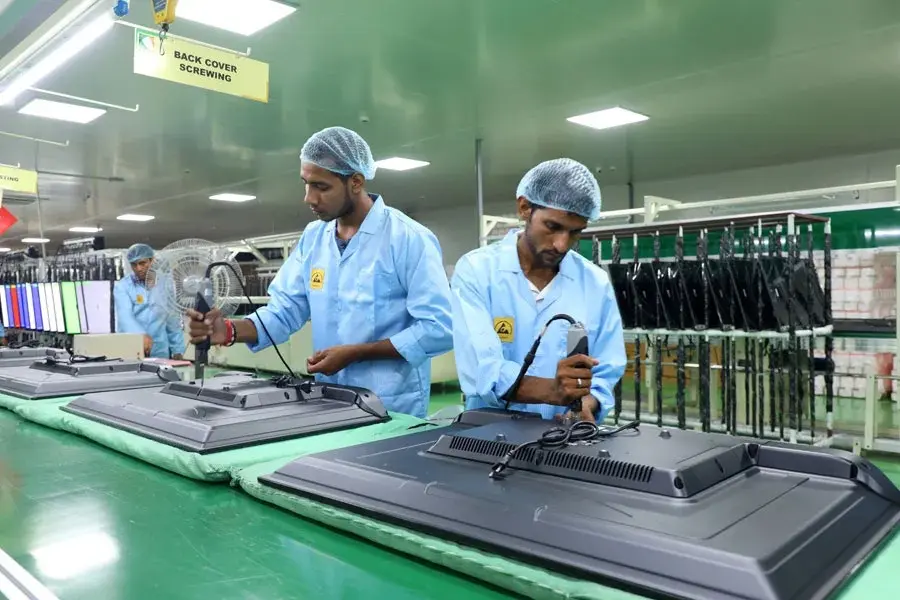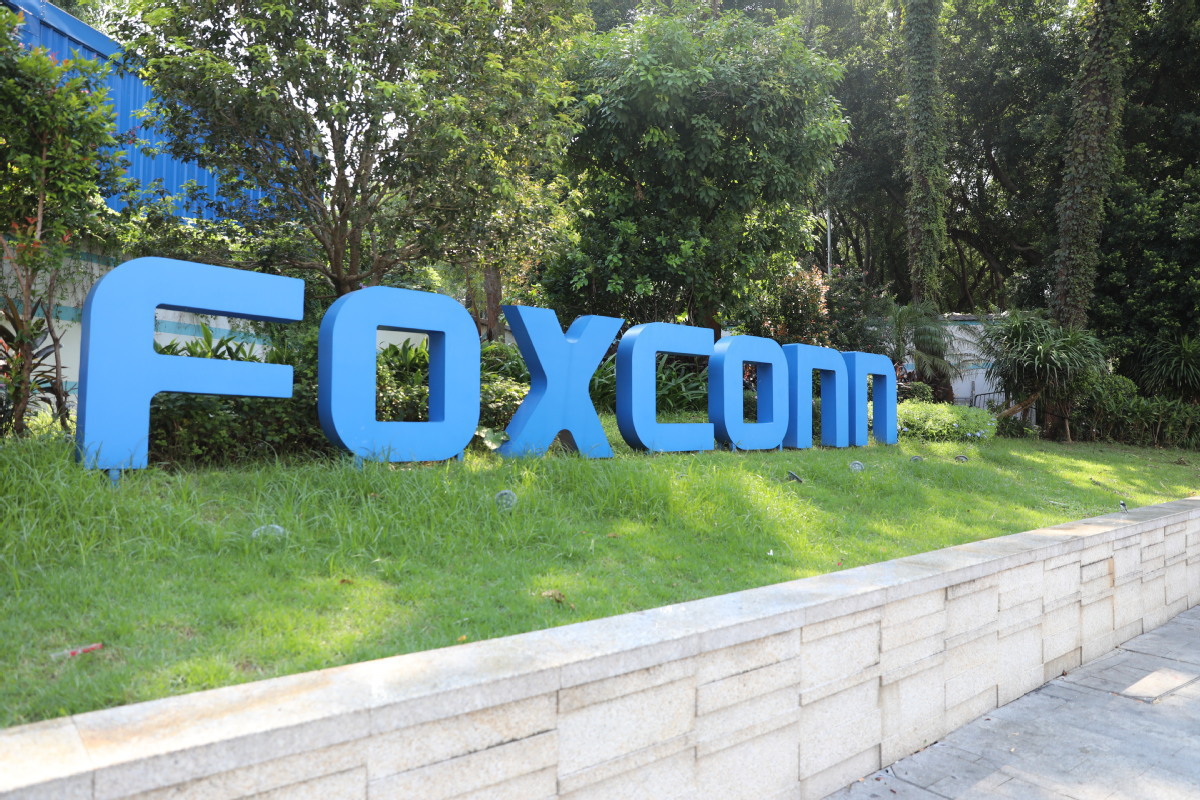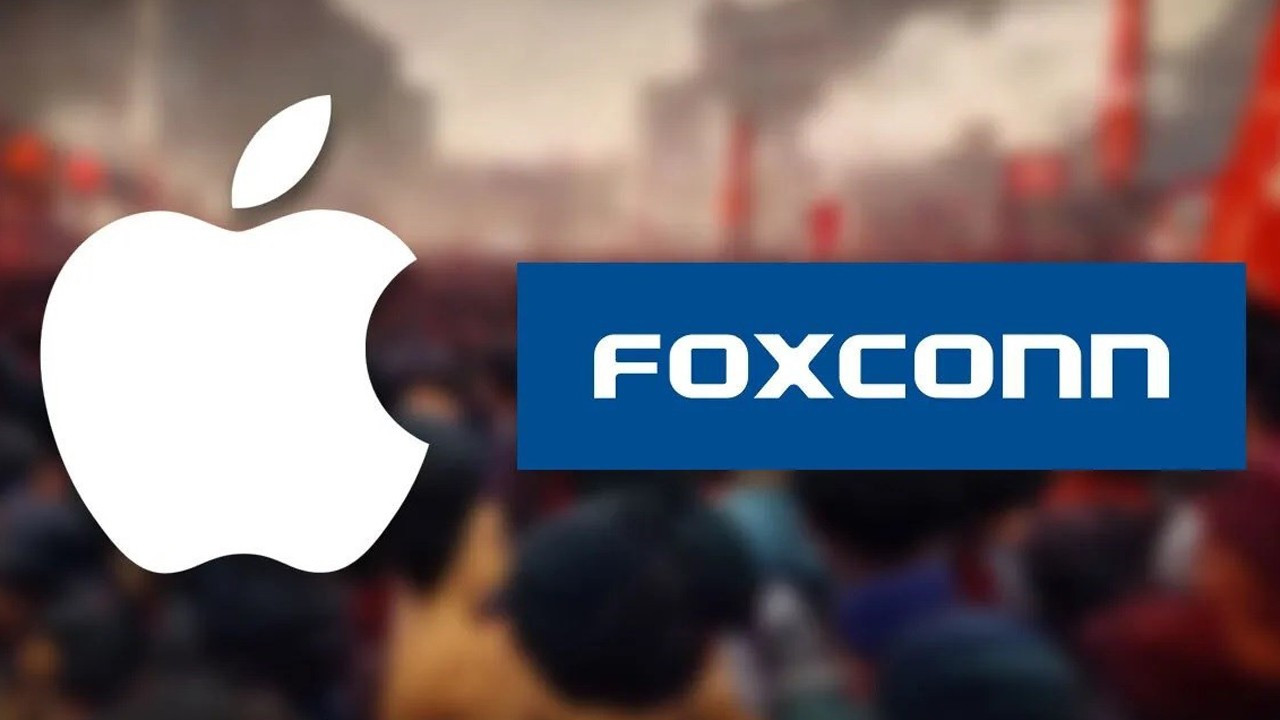Foxconn’s Ambitious Plans For India, Doubling Workforce and Investment in India by 2024
Foxconn, the Taiwanese contract manufacturing giant and a key player in Apple's supply chain, is charting an ambitious course for its operations in India. V Lee, the company's representative in India, recently unveiled Foxconn's grand vision to double its workforce and investment by 2024. While specific details remain undisclosed, Foxconn's already substantial presence in Tamil Nadu serves as a testament to its commitment to India. Similarly, the company's foray into the electric vehicle (EV) market in India and Chairman Young Liu's eagerness to invest billions indicate India's position in Foxconn's global expansion strategy.

Foxconn is setting its sights on an ambitious expansion plan in India by the year 2024, according to V Lee, the company’s representative in India.
In a LinkedIn post on Prime Minister Narendra Modi’s 73rd birthday, Lee conveyed the company’s aspirations, which involve doubling their workforce, increasing foreign direct investment (FDI), and expanding their business footprint in India.
While specific details regarding this expansion were not disclosed, Foxconn, renowned for its role in iPhone manufacturing and is the world’s largest contract manufacturer, already boasts a substantial presence in Tamil Nadu, where its factory employs over 40,000 individuals.

Recently, Foxconn made headlines when Lee confirmed their evaluation of various Indian states, including Tamil Nadu, for their electric vehicle (EV) ventures.
In a statement, Lee shared that the company’s diversification strategy, as outlined by Chairman Liu in their previous earnings call, includes expanding into states such as Karnataka and Telangana, in addition to Andhra Pradesh and Tamil Nadu.
Lee emphasized that consumer electronics remain a key focus in India, with EV components slated to become part of their offerings in the coming year.

Foxconn boss sees potential to invest billions in India.
Foxconn’s Chairman, Young Liu, had previously expressed strong interest in investing in India, seeing the potential for “several billion dollars” in investments; the company aims to reduce its reliance on China and diversify its manufacturing capabilities.
Foxconn, known by its official name, Hon Hai Precision Industry, is the world’s biggest contract electronics manufacturer and assembles devices for many companies, most notably Apple’s iPhones.
It operates in more than two dozen countries, but the bulk of its operations are based in China — a dependence it is looking to reduce, with media reports of major investments in India.
“From the perspective of India’s potential market size and if we can fully implement our plans there, I think several billion dollars in investment is only a beginning,” Foxconn chairman Young Liu said when asked during an earnings call if the firm planned to invest $2 billion in India.

Foxconn in May announced the purchase of a huge tract of land on the outskirts of Indian tech hub Bengaluru for $37 million.
Foxconn already operates multiple production campuses and over 30 factories in India, with an annual business turnover of approximately $10 billion.
Their expansion plan encompasses critical components for consumer electronics and electric vehicles, and while shipping for these components may begin next year, construction has already commenced this year in three Indian states.
It’s worth noting that Foxconn recently withdrew from a $19.4 billion deal with India’s Vedanta for semiconductor production in Gujarat, which had been part of India’s strategy to enhance self-reliance in the tech supply chain.
Foxconn’s second-quarter financials reflected a one per cent drop in net profits and a 14 per cent decline in revenues, indicative of the challenges faced in the global electronics market during an economic downturn.
Meanwhile, it came to be known that Foxconn allegedly offers higher pay to Huawei workers than iPhone assemblers.
The global tech sector was abuzz when Huawei unveiled its Mate 60 Pro, a flagship smartphone powered by the Kirin 9000S chipset. This chip, rumored to be produced by China’s SMIC with a 7nm-class fabrication process, positioned Huawei in direct competition with Western chip manufacturers and phone producers, despite prevailing US sanctions on Chinese companies.

Recent reports suggest that Foxconn, a prominent supplier and assembler for tech giants like Apple, is paying its workers more to work on Huawei’s smartphones at its Shenzhen facility than they earn assembling Apple’s iPhones; this revelation comes from a report by the South China Morning Post.
According to a Foxconn recruiter known only by the surname Xu, new hires at the factory are assigned to different teams based on current demand, with a higher likelihood of working on Huawei devices.
Apple’s iPhones are assembled by Foxconn’s integrated digital product business group (iDPBG), while Huawei’s phones are produced under the FIH group, formerly known as Foxconn International Holdings.
The SCMP discloses that FIH is offering 26 yuan (approximately $3.60) per hour, as relayed by two recruiters, while iDBPG workers are receiving 21 yuan per hour (about $2.89).
The exact reasons for this wage disparity remain unclear, though it’s speculated that the Mate 60 Pro’s popularity in China may play a role. Xu also noted that FIH employees often receive higher pay, but the iPhone manufacturing group generally provides better worker welfare programs, indicating superior benefits.
Regardless of the reasons, a wave of new smartphones is entering China, the world’s largest smartphone market. Huawei’s Mate 60 Pro recently hit stores, with reports from Digitimes indicating orders for 15 – 17 million units.
The Mate 60 Pro, powered by a domestically developed chip and Huawei‘s proprietary HarmonyOS, has fueled patriotic sentiment in China, evident in long lines outside stores selling the device, as seen on local social media.

Additionally, there have been reports of China discouraging the use of iPhones for government purposes, although the foreign ministry clarified that no official policy or law bans the use of foreign brand phones like Apple.
Meanwhile, Apple recently unveiled its iPhone 15 and iPhone 15 Pro lines, with pre-orders commencing shortly. The close release of these two flagship phones has intensified competition and necessitated a substantial workforce for assembly.
Apple, like many other companies, has been gradually diversifying its supply chain.
Notably, iPhones manufactured in India will now launch concurrently with those assembled in China, with both facilities owned by Foxconn. This move helps Apple expand its presence in India without incurring tariffs on imported phones, a strategic response to geopolitical tensions.
While Apple is expected to maintain a significant presence in the Chinese market, it faces formidable competition from Huawei, buoyed by a surge in technological nationalism. Currently, it appears that Huawei and Foxconn are willing to invest in ensuring an ample supply of Mate 60 Pro smartphones to meet demand.
The Last Bit, Foxconn’s bold plan to double its workforce and investments in India reflects the company’s confidence in the country’s potential as a manufacturing and business hub.
As they look to diversify away from China, India emerges as a key destination for Foxconn’s growth; with ith its strong focus on consumer electronics and the imminent inclusion of EV components in its portfolio, Foxconn’s expansion promises to make a significant impact on India’s industrial sector.
However, navigating this ambitious path may come with its own set of challenges, as evident from recent developments; nevertheless, Foxconn’s determination to bolster its presence in India signifies the nation’s growing prominence in the global tech manufacturing arena.




